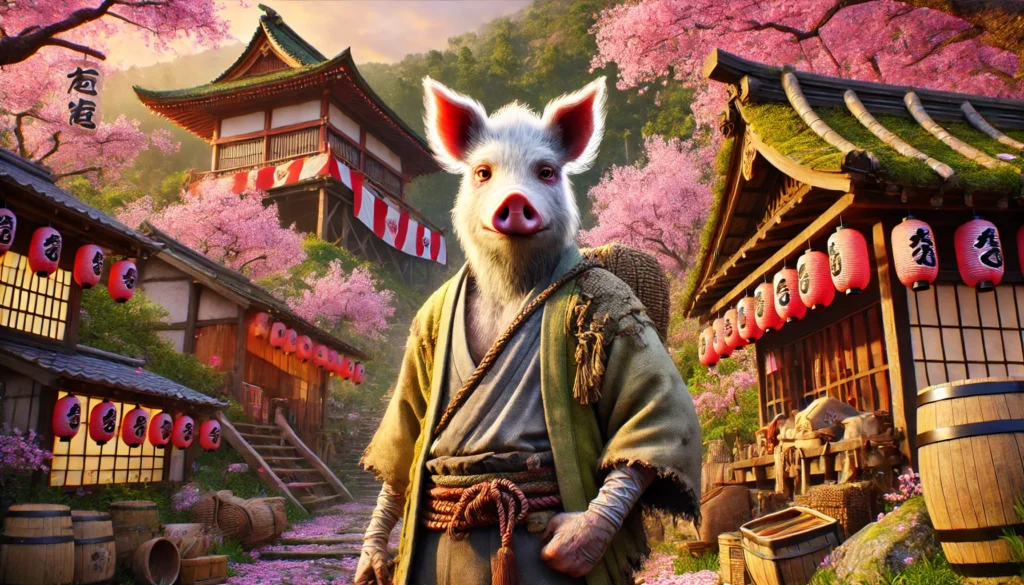Why Are People Hooked on “Butareba – The Story of a Man Turned into a Pig”?
butareba -the story of a man turned into a pig– is transformation story isn’t your usual fantasy flick. It’s quirky, relatable, and it dives into what happens when life takes an unexpected turn. It doesn’t try to sell magic or heroics. Instead, it’s a story of a man adapting to a bizarre change.
Imagine waking up one day to find yourself not as a human but as a pig. Sounds strange, right? This story follows a man in that exact situation, giving viewers a funny yet honest look into transformation and adaptation.
But why does this appeal so strongly? Who finds themselves curious about a man’s journey as a pig? Well, there’s something universal in adapting to unexpected situations.
What’s Behind the Pig?
A New Lens on Identity and Purpose
butareba -the story of a man turned into a pig- goes beyond just transformation. Turning into a pig forces our protagonist to re-examine his identity. As a pig, he’s not accepted as he once was. He faces new challenges, and his sense of self takes a hit.
Ever faced a time when you felt out of place or judged based on things beyond your control? That’s precisely the kind of story this show shares. The twist? Our hero is literally transformed into an animal, making his struggles both humorous and oddly relatable.
Life Lessons in a Pig’s World
The story doesn’t waste time on grand ideas. Instead, it keeps things grounded, reflecting on everyday challenges:
- Self-acceptance: Our protagonist learns to accept himself, even as a pig.
- Adaptability: Being a pig isn’t easy, especially when the world is set up for humans.
- Overcoming judgment: In his new life, he faces bias and misunderstanding at every turn.
These elements keep butareba -the story of a man turned into a pig- fresh and impactful, as they resonate with anyone who’s ever felt different.

Breaking Down the Key Themes of “Butareba – The Story of a Man Turned into a Pig”
Identity and Change
Who are we if we’re no longer the same person we once were? butareba -the story of a man turned into a pig- explores that big question through an absurd situation. While it may sound like a simple story of transformation, it pushes the audience to consider their own identities. Would you be the same if suddenly seen as something you’re not?
Learning to Thrive in a New World
As our protagonist learns, being a pig has its drawbacks. He’s forced to look at the world from a whole new angle. Imagine struggling to communicate when people no longer recognize you. The show smartly uses humor here to highlight real-life struggles. Not everyone is a pig, of course, but many have felt invisible or misunderstood.
Surviving and Thriving Despite Judgment
Turning into a pig means the world around him no longer views him with the respect he once enjoyed. Imagine losing your dignity overnight. It’s funny and insightful, showing the lengths one goes to earn respect, even when they look entirely different.
Why Why Isn’t Just a Fantasy Story butareba -the story of a man turned into a pig-
More Real Than It Seems
Despite its fantastical premise, Despite its fantastical premise, takes real, hard-hitting themes and puts them into a digestible story. The man-turned-pig represents everyone who’s been forced to adapt to a sudden change. We all face transformations. Maybe not as drastic, but certainly enough to relate to feeling out of place.
takes real, hard-hitting themes and puts them into a digestible story. The man-turned-pig represents everyone who’s been forced to adapt to a sudden change. We all face transformations. Maybe not as drastic, but certainly enough to relate to feeling out of place.
A Story That Makes You Think
Sure, it’s about a pig, but it’s also about the bigger picture – accepting the unexpected, adapting, and moving forward. If you’ve ever had a job change, moved cities, or felt like an outsider, this story’s for you.
Frequently Asked Questions (FAQs) About “Butareba – The Story of a Man Turned into a Pig”
1. What makes “Butareba – The Story of a Man Turned into a Pig” unique?
The uniqueness of butareba -the story of a man turned into a pig- lies in its unusual storyline – a man turning into a pig. While it might seem funny, the story goes beyond humor, exploring deep themes like identity, adaptation, and self-acceptance.
2. Does “Butareba” offer any life lessons?
Absolutely. It’s a humorous take on serious ideas. From learning to adapt in unfamiliar situations to accepting oneself in any form, butareba -the story of a man turned into a pig- packs relatable messages in an entertaining package.
3. Is “Butareba” suitable for all ages?
While it has humor,butareba -the story of a man turned into a pig- also contains mature themes about identity and adaptation. Older audiences may better grasp the deeper messages, but anyone can enjoy its humor and absurdity.
4. Why does the man turn into a pig in the story?
In butareba -the story of a man turned into a pig- – The Story of a Man Turned into a Pig,” the transformation serves as a metaphor. While the story doesn’t fully explain the “why,” it makes the viewer think about how they’d handle sudden, uncontrollable changes in their life.
5. What can viewers expect from this show?
Viewers can expect humor, relatability, and moments that feel surprisingly real. The show balances absurdity with genuine insights, appealing to anyone who’s faced change or felt out of place.

Who Will Enjoy “Butareba – The Story of a Man Turned into a Pig”?
If you enjoy stories that mix humor with deeper themes, this one’s for you. It’s lighthearted but thoughtful. It takes a humorous look at serious issues. For those who appreciate stories that feel both fantastical and real, “butareba -the story of a man turned into a pig- won’t disappoint.
Whether you’re a fan of anime, enjoy unique storylines, or simply want a fresh take on transformation, give butareba -the story of a man turned into a pig-
“Butareba – The Story of a Man Turned into a Pig” turns a bizarre concept into something universally relatable, making you laugh, think, and maybe even see things a little differently.

